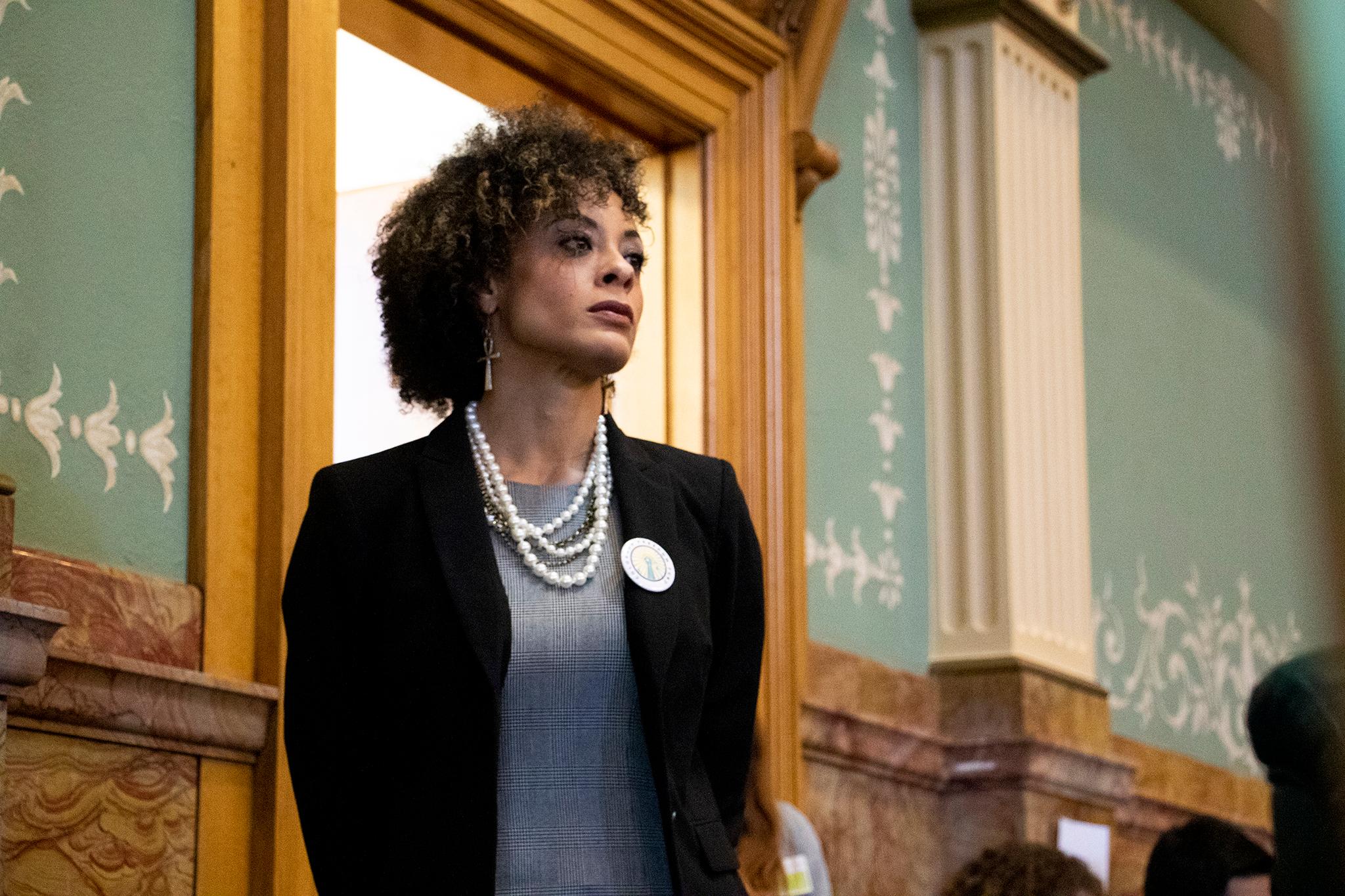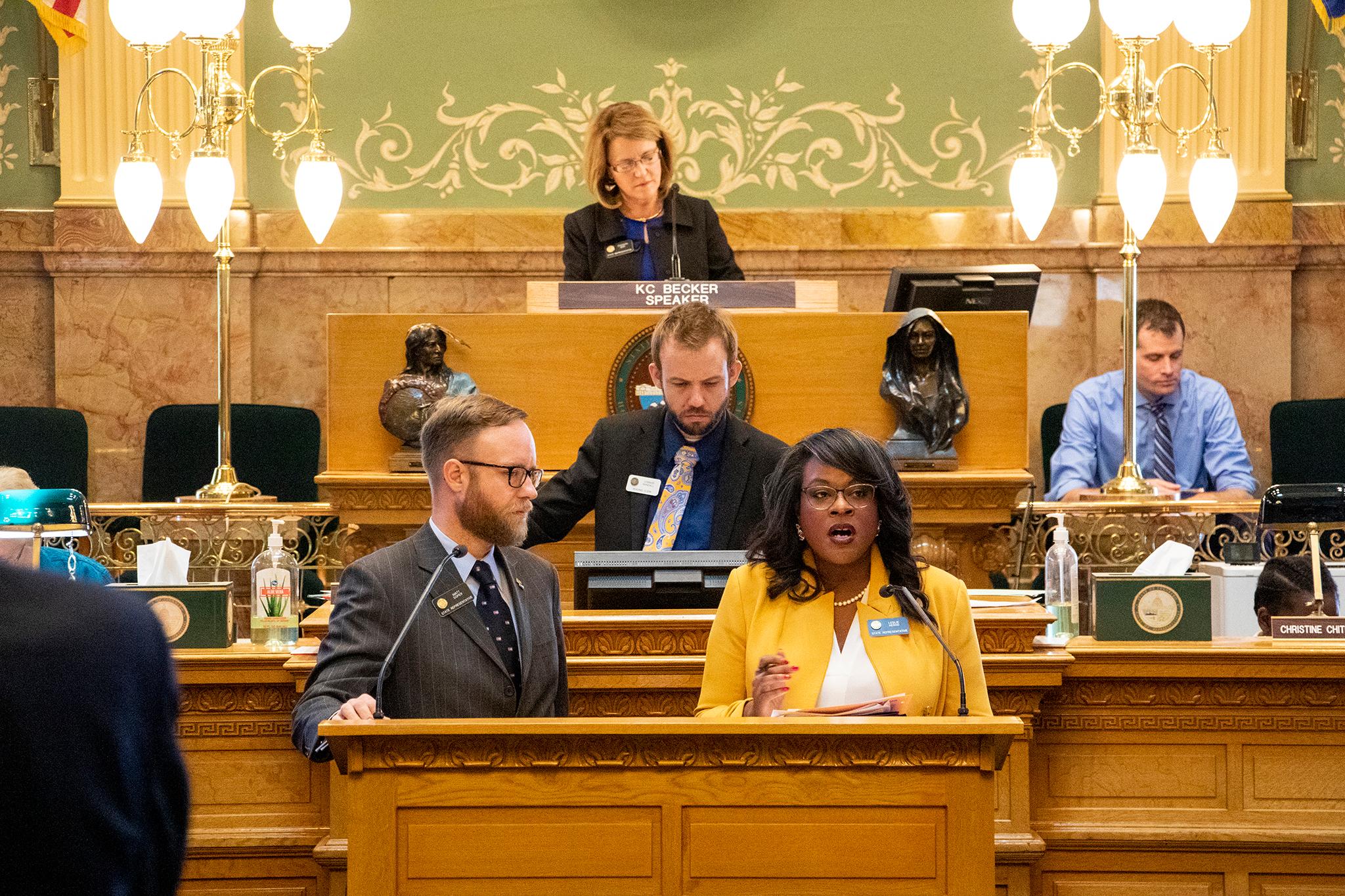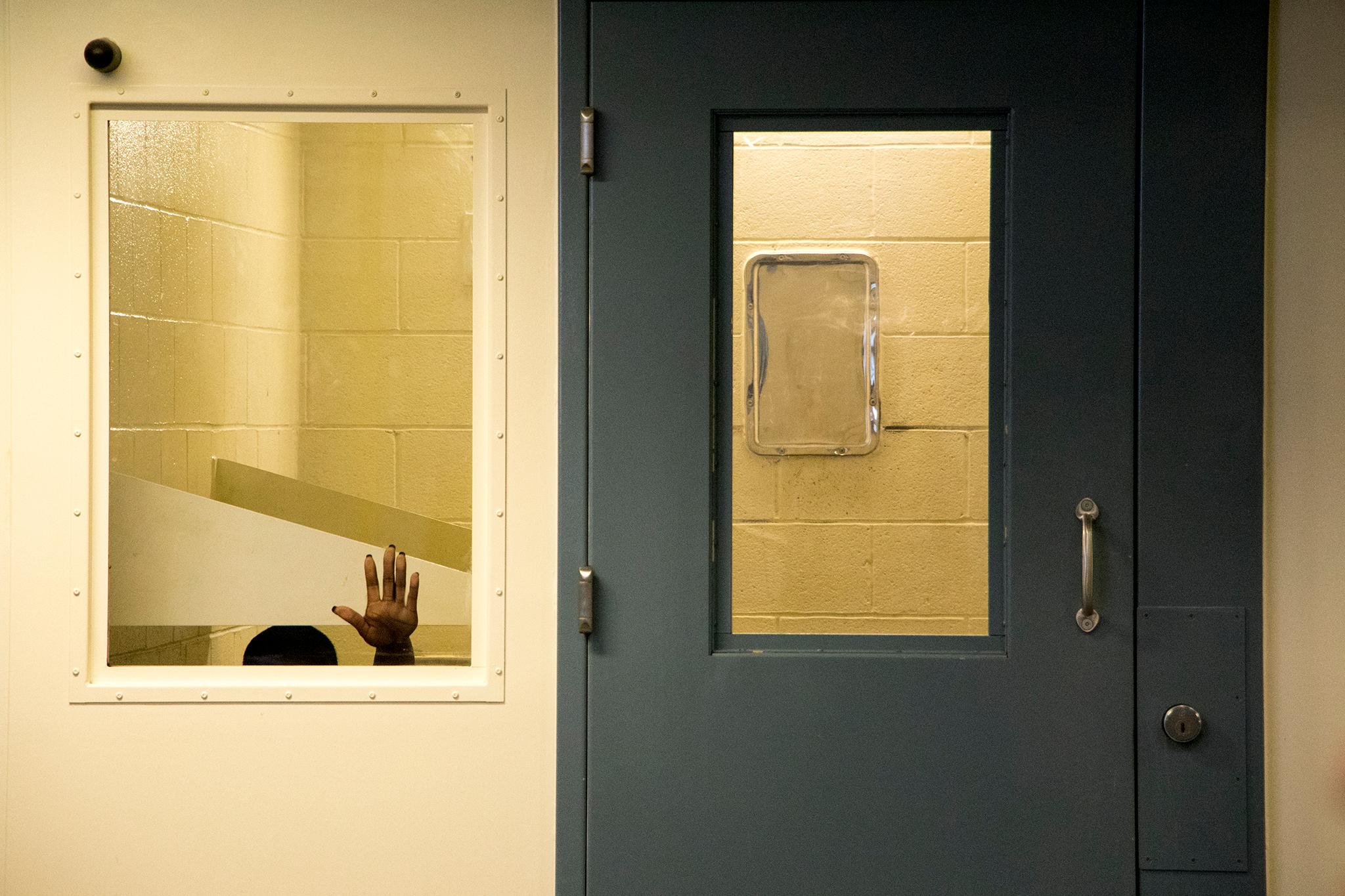A new program by the ACLU of Colorado and the Colorado Freedom Fund launching this week aims to train a new kind of watchdog.
The Fourth Estate, a term recognizing journalism's role as a check on power, is an idea as old as the United States itself. And in recent years, efforts to enforce a different kind of accountability have taken root. Community watchdog groups, focusing on the criminal justice system, have sprung up in Massachusetts, Chicago and Brooklyn. You could think of them as a Fifth Estate, a separate but powerful system for keeping judges and prosecutors on the straight and narrow.
Court Watch Colorado aims to bring that kind of civilian oversight to Denver and beyond, specifically to ensure that criminal justice reforms passed by the legislature this year are being upheld. They'll hold an inaugural volunteer training this Saturday at the Central Park Recreation Center.
Court Watch Colorado has hardly started, but organizers have already proven the power of extra eyes on local justice systems
Last Monday, Elisabeth Epps, a coordinator with the new program, sat in an Aurora judge's office as he made first contact with people waiting in municipal jail for their day in court.
She made the visit to see how difficult it might be for civilian legal observers to get into the room, but she quickly noticed something that disturbed her. The judge spoke to about 20 people over a video feed and asked each if they'd like to plead "guilty" and move right to sentencing, or if they'd prefer to plead "not guilty" and then speak with a public defender. But a third option, which is guaranteed by law, was absent from his speech.
In 2016, House Bill 16-1309 gave defendants a right to legal representation before they make a plea at these first appearances. None of the 20 people Epps watched were notified of this right. She began feverishly texting ACLU colleagues to see if that was acceptable.
By Wednesday, ACLU attorney Rebecca Wallace had emailed Shawn Day, Aurora municipal court's top judge. Earlier this year, Epps sat before Day as a defendant. He sentenced her to jail for a few weeks for interfering with police business; she had attempted to separate a man in crisis from officers who, she thought, were about to arrest him. Aurora Police let the man go. Epps ended up in handcuffs.
"We were surprised to see what appeared to be blatant violations of HB 16-1309," Wallace wrote, adding she hoped he would "bring the court into compliance with the law."
Day responded within hours.
"I want you to know that I take your concerns seriously," he replied. "I want to assure you that I have immediately addressed the concerns."
Day did not respond to Denverite's request for comment.
Epps returned to the courthouse on Friday, where she watched the judge from Monday process another batch of first appearances.
"I was there for the full docket and his speech was totally different," she said. Though he stammered as he navigated the new script, he notified each defendant of their right to an attorney.
Epps said this is a small change, but it's still important. She estimated half of those defendants would plead guilty anyway, but taking that third option means they can negotiate with the city and that they'll be properly informed of any consequences related to probation or immigration status.
Legal observers will be watching for another measure that bans cash bail for minor offenses, but organizers expect to see more tangential benefits.
Last April, the Colorado legislature passed House Bill 1225, which guarantees that people who commit certain low-level offenses be released from jails without posting bail. Epps worked with Rep. Leslie Herod on the measure.
It represented a victory in Epps' campaign to end cash bail, which she said subjects poor people to family separation and danger while they're incarcerated. These are people who couldn't otherwise pay their way out of jail before they are convicted of any charge.
But the legislative win was not the end of her campaign. Now she and her colleagues at Court Watch need to make sure judges actually follow the new law. Even though judges are notified when laws are added or changed, she said they don't always uphold them as they should.
While she acknowledged it takes time for courts to get up to speed on new statutes, she said it's time to start watching proceedings more closely. The law went into effect when it was signed, but she and her colleagues have still seen and spoken to defendants who were stuck behind bars despite charges that qualified them for automatic pretrial release.
"It hasn't been followed everywhere," she said. "We're optimistic, but there are certainly gaps."


Court Watch's efforts will begin by focusing on Denver, Jefferson and Arapahoe counties when it launches, but Epps said their aim is to attract volunteers across the state. In the metro area, she expects they'll have more people than they have open slots to fill. Observers may be harder to find in less-populated areas beyond the Front Range, but those places generally have fewer bond hearings each week.
Jessica Howard, ACLU Colorado's community education manager, said all people in power need to be held accountable, and that there's power in observation.
"What better way," she said, "than if you know your public is watching you."
Epps said the Court Watch programs in other states have changed the way judges act.
"There's been a phenomenon of certain problematic judges behaving better," she said. "You don't want the factor that makes them act right being some lady in a vest sitting in his courtroom. But, at the same time, if they're behaving in a different way because they know they're being monitored, that's a win for everyone."
Court Watch Colorado will recruit new volunteers through events and by engaging community groups who are already interested in this kind of work. They'll teach people without legal backgrounds what a court proceeding should look like and how to collect data that will inform larger reports.
Those reports will inform longer-term policy and, Epps said, voters' crucial role in confirming judges.
It's an exercise in "community governance," she said, when people recognize and use their power in our legal systems. A disconnected public could allow officials to wield their power inappropriately.
"We want public awareness," she said. "We certainly hope it will positively impact people's ability to make informed decisions and not just vote yes down the line."











